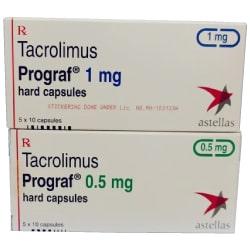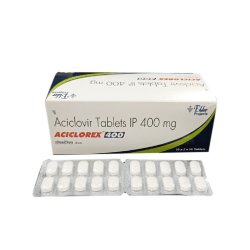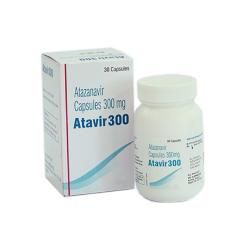Description
The primary indications for the use of the calcineurin-inhibitor immunosuppressant medication Tacrolimus Capsule include:
Prophylaxis of organ rejection: a strategy used to reduce the risk of organ rejection in patients undergoing allogeneic liver, kidney, or heart transplants. It accomplishes this by blocking the enzyme calcineurin, which is necessary for the synthesis of interleukin-2, a chemical that stimulates T cell growth and proliferation and is essential for the body’s acquired (or adaptive) immune response.
Tacrolimus Capsule is also suggested for the treatment of other T cell-mediated conditions like vitiligo, severe refractory uveitis following a bone marrow transplant, eczema, and psoriasis (for which it is applied topically as a medicated ointment), as well as exacerbations of minimal change disease.
Dosage and Side Effects
Oral tacrolimus 5 mg should be taken with or without food at roughly the same time every day. It is recommended to take tacrolimus pills whole, together with water. Tacrolimus capsules are not meant to be eaten, cracked, or opened. It would be preferable to administer the pills regularly with or without meals; avoid consuming grapefruit juice.
Tacrolimus side effects that are most common and severe include heart damage, infection, weakness, depressive symptoms, vivid nightmares, cramps, neuropathy, blurred vision, issues with the liver and kidneys, appetite loss, lung damage, burning or itchy feeling, headache, coughing, and burning eye.
FAQ's
Is Tacrolimus an Immunomodulatory Drug?
Tacrolimus, derived from Streptomyces tsukubaensis, is a macrolide immunosuppressant.
How does Tacrolimus safeguard newly transplanted organs?
Following a liver, kidney, or heart transplant, the body’s immune system identifies the new organ as foreign and attempts to reject it. Tacrolimus intervenes by slowing down the immune system, thereby protecting the newly transplanted organ.
What precautions should be taken while using Tacrolimus?
During Tacrolimus treatment, it’s important to avoid receiving live vaccines like nasal flu vaccines, oral measles-mumps-rubella, polio, BCG (tuberculosis), yellow fever, varicella (chickenpox), and typhoid.
Who should refrain from taking Tacrolimus?
Tacrolimus capsules should not be taken by individuals allergic to Tacrolimus or any of its components.






